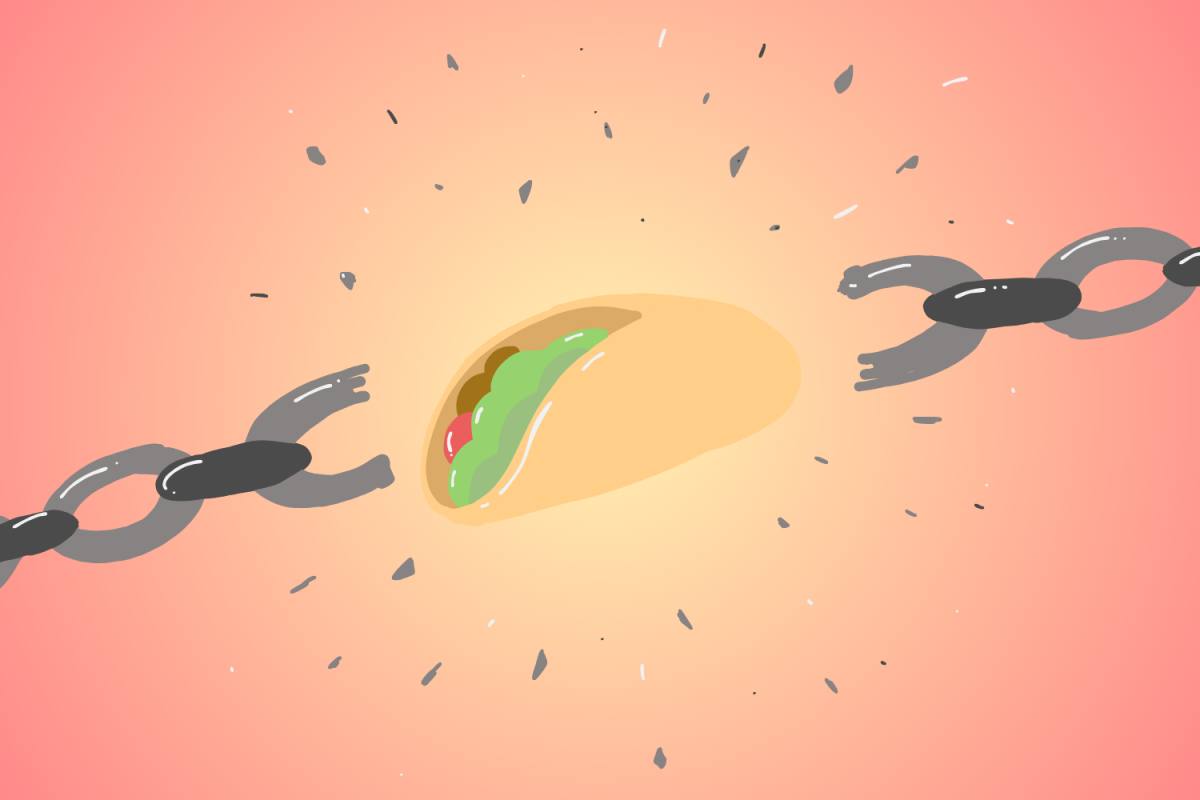Having grown up in a spice-scented, ritualistic, home-cooked world, food has always been my connection to culture. If I go into a small Nepali restaurant, with the scent of turmeric and ghee in the air, I’m not reading a menu. I’m in my grandmother’s kitchen. I’m listening to her voice. I’m remembering who I am. At that moment, I’m home again.
In a convenience-driven culture, we tend to lose sight of the fact that food is not just fuel, it’s identity. Fast food chains provide familiarity and speed, but small businesses have something chains lack: a human factor, a living history that each plate contains.
These restaurants do not just serve meals. They serve memories.
“As a South American, I take pride in cultural cuisine. Most fast-food chains try to replicate it, like Taco Bell with its Americanized versions of tacos and empanadas, but it just isn’t the same as when you have it at home,” said senior Katherine Sagastume Serapio. “When I eat at a small business that serves dishes like home, it makes me feel nostalgic. It reminds me of a time with my family, that I have left back home.”
It is that warmth, that feeling of being a part of something bigger than yourself, that makes those family restaurants so endearing. It’s not what you serve on the plate, but who served it, why they served it, and how it brings people together.
The late Anthony Bourdain understood this. A globally famous chef, author, and travel documentarian, Bourdain used his celebrity status to shine a light on the lives of everyday individuals around the world. He did not fantasize about five-star eateries or hotel breakfast spreads. Instead, he traveled to cozy street stalls, local diners, and family-run kitchens, locations that are often overlooked by mass tourism. Bourdain promoted small businesses not for the sake of novelty, but because he believed they had the essence of a place. On his TV programs like Parts Unknown and No Reservations, he showed how food from local establishments could be a connecting link, bringing people together, preserving traditions, and giving voice to those who rarely show up on international television.
“I’ve been able to experience so many cultures and traditions through these small businesses who bring it to you,” said junior Arianna Medal. “It fuels your desire to experience more of the world.”
Local restaurants characterize our neighborhood in a way chains simply can’t. They preserve the family legacy, carry on cultural heritage, and sustain the local economy. Across Arcadia, small family-owned establishments such as Oto-Oto Izakaya Japonaise offer cozy, homey Japanese cuisine, with recipes passed down from generation to generation. New Fusion serves up hand-made dumplings following traditional recipes. Mexican restaurants such as Villa Catrina serve up authentic flavors and a festive cultural atmosphere. Even hidden gems like Garden Café uphold the immigrant spirit in fusion dishes and late-night comfort food. Every dollar spent at these small, locally operated restaurants feeds a family’s dream and preserves the cultural fabric of our neighborhood.
To me, these restaurants are more than somewhere I can eat. They’re where my culture is respected. They keep me grounded in the life I lead and let me know that while I am out of my home, my culture is still with me.
The next time you’re deciding where to eat, skip the chain. Go to the restaurant with the menu written on the board, family photos adorning the walls, and recipes prepared with love. You’ll find something greater than food, you’ll find home.







